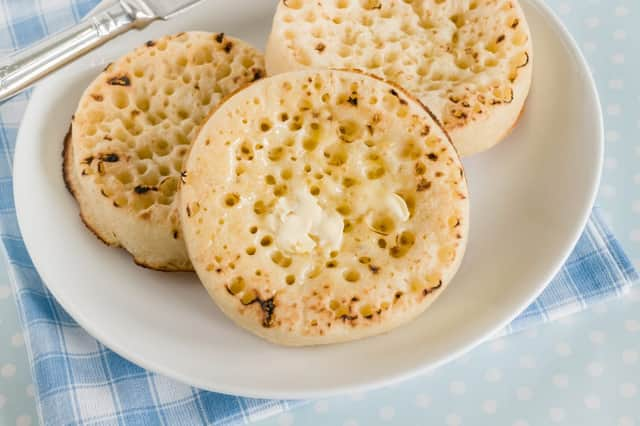A crumpet can contain as much salt as two portions of McDonald’s chips


One of the UK’s most popular breakfast foods contains almost twice as much salt as a portion of McDonald’s fries, according to health campaigners.
The Warburtons crumpet is beloved by many, but despite pleas from campaigners the salt content has remained unchanged for four years, with each one containing 0.81g of salt.
Advertisement
Hide AdAdvertisement
Hide AdThe high sodium content in crumpets generally has been highlighted in a report by campaign group, Action on Salt, which found that several brands of crumpets do not meet the government’s voluntary salt reduction target for crumpets of under 1.25g per 100g by 2017.
Why is high salt intake a problem?
While eating small amounts of salt is almost unavoidable and unlikely to cause health issues, consistently having a diet high in salt can lead to a number of problems.
Professor of cardiovascular medicine at Queen Mary and chairman of Action on Salt, Graham MacGregor, said, “Reducing salt is the most cost-effective measure to lower blood pressure and reduce the number of people suffering from strokes and heart disease.”
The government recommends that adults and children over 11 should make sure their salt intake is no more than 6g per day.
Advertisement
Hide AdAdvertisement
Hide AdWhile adding table salt to meals can be an issue, the majority of salt we consume is already in the foods we eat, so checking the nutritional information on food you prepare or order is always recommended.
Which other foods contain a lot of salt?
Foods which are generally high in salt include meats which have been smoked, cured, salted or canned, and processed foods including meat, cheese and bread.
The British Heart Foundation notes that there are a number of food items used commonly in cooking or eaten alone that contain surprising amounts of salt.
These include cheese and butter, salty spreads like margarine, and sauces such as soy, fish and even ketchup.